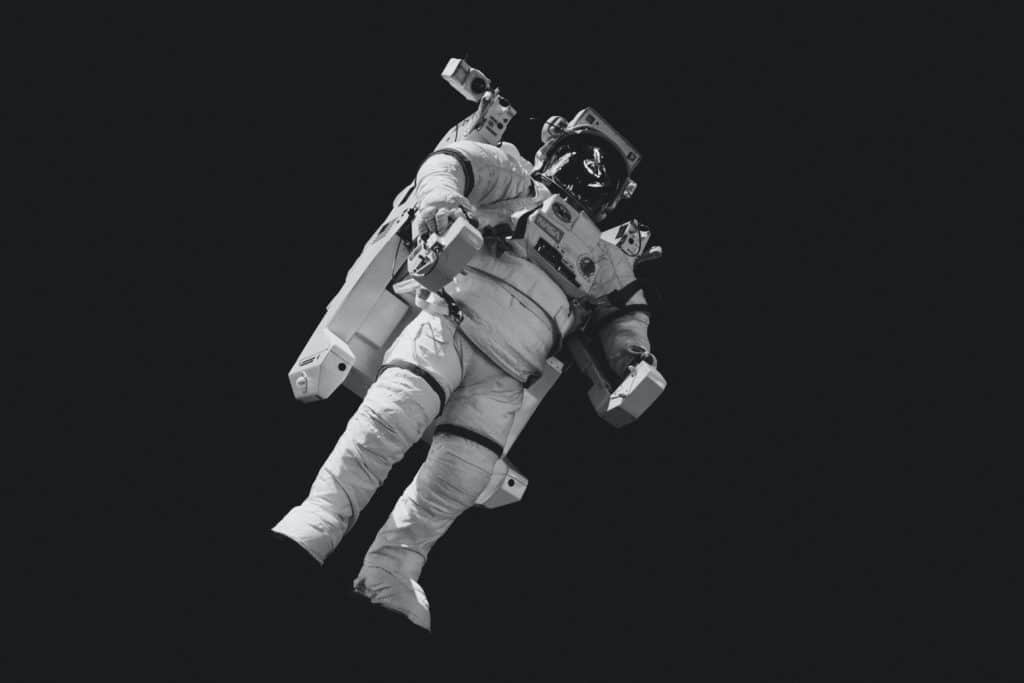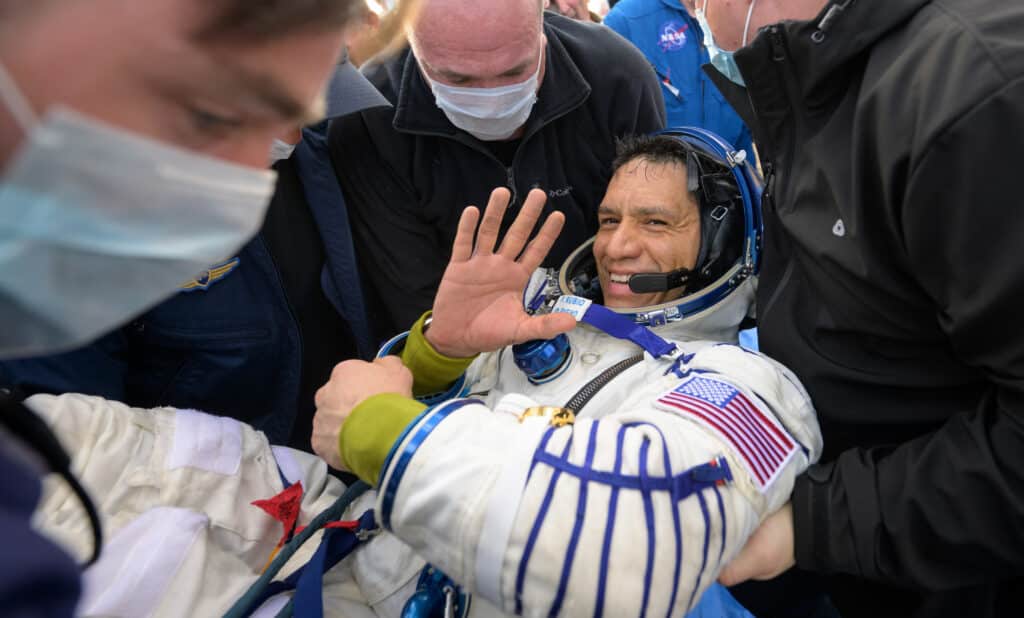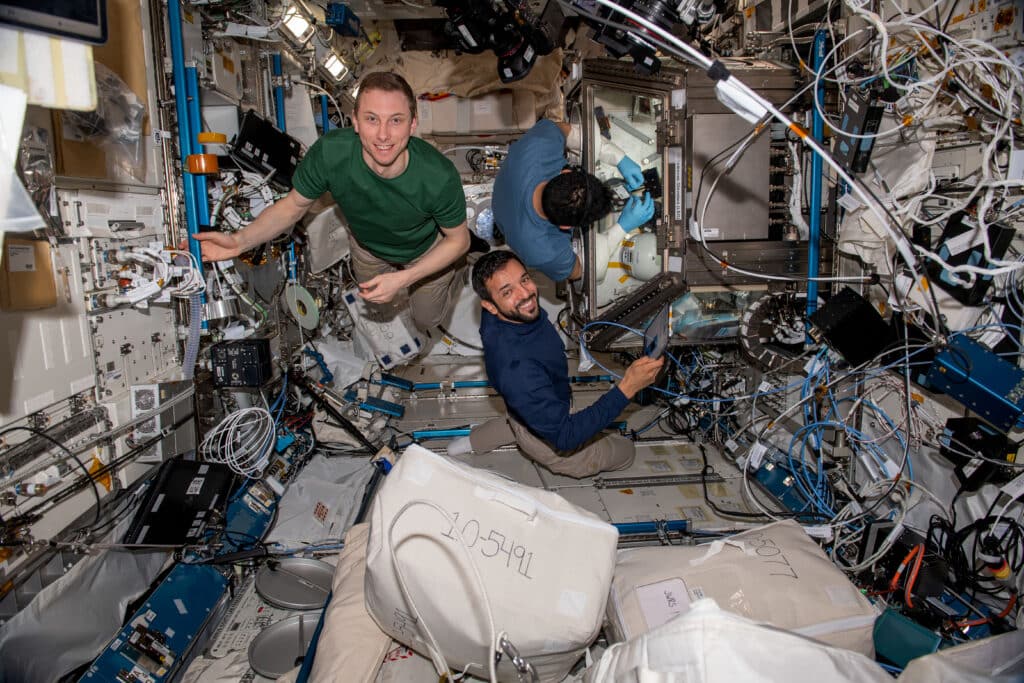
Being weightless in space can impact astronauts’ health during space missions. A new study, published in the journal iScience and conducted by University of Surrey researchers, unveils that simulated effects of microgravity can significantly disrupt the rhythmic expression of genes in humans, potentially impacting health during space missions.
These latest findings come on the heels of a separate study showing that extended space missions can cause astronauts to suffer from migraines.

Microgravity, the condition of experiencing weightlessness, affects astronauts in several ways, including weakening the immune system, increasing inflammation, and causing a decrease in muscle mass and bone density. With human spaceflight becoming more frequent, understanding these molecular-level changes is crucial for ensuring astronauts’ health and safety.
“This unique study represents the largest longitudinal dataset of time series gene expression in humans,” says study lead author Simon Archer, a professor of molecular biology of sleep at the University of Surrey, in a media release. “Human gene expression varies rhythmically over the 24-hour day, and it is important to collect time series data rather than from just single time points to get a full picture of what occurs in the body when exposed to simulated microgravity. It also raises questions about the impact of constant bed rest on our bodies as we have identified a dramatic effect on the temporal organization of human gene expression.”
The study was carried out in collaboration with the European Space Agency at the MEDES space clinic in Toulouse, France. It involved 20 men who followed a strict protocol designed to simulate microgravity’s effects, including 60 days of bed rest with a minus-6-degree head-down tilt. Researchers collected data on gene expression across several days at different stages of the protocol, finding that 91 percent of gene expression was affected. The disruption was notable in the number, timing, and amplitude of rhythmic genes, which are essential for processes such as protein translation, immune response, and muscle function.
Although muscle function disruption was reversed during the recovery period, the study observed lasting effects on protein translation, hinting at potential long-term health implications for astronauts.
“Space travel was once thought to be unachievable; however, the growth of the space industry means it is now a real possibility,” notes study senior author Derk-Jan Dijk, professor of sleep and physiology at the University of Surrey and director of the Surrey Sleep Research Center. “A lot remains unknown about the impact of microgravity on the body, and it is important we know more about this before we start ‘holidaying’ in space. Building on what we have found, the second part of our study, using the same cohort of men, will investigate the impact microgravity has on sleep, circadian rhythms and hormones of individuals.”
Keith Ryden, professor of space engineering at the University of Surrey and director of the Surrey Space Center, also remarked on the timeliness of this research amidst renewed interest in human spaceflight, including NASA’s Artemis project and the growth of space tourism.

“In addition, new plans are in place for a UK astronaut going to the ISS in 2025 via the UKSA Axiom program,” says Ryden. “It is great to see that with this new publication, the University of Surrey, well-known for its space research, is laying foundations for how to better manage the impact of the space environment on space travelers and ensure their safety.”
This study lays the groundwork for future research and interventions that could mitigate the health risks associated with long-duration space missions, ensuring the safety and well-being of space travelers as we venture further into the cosmos.
The post Microgravity Can Disrupt Astronauts’ Gene Expression Rhythms During Space Missions appeared first on SpaceChatter.